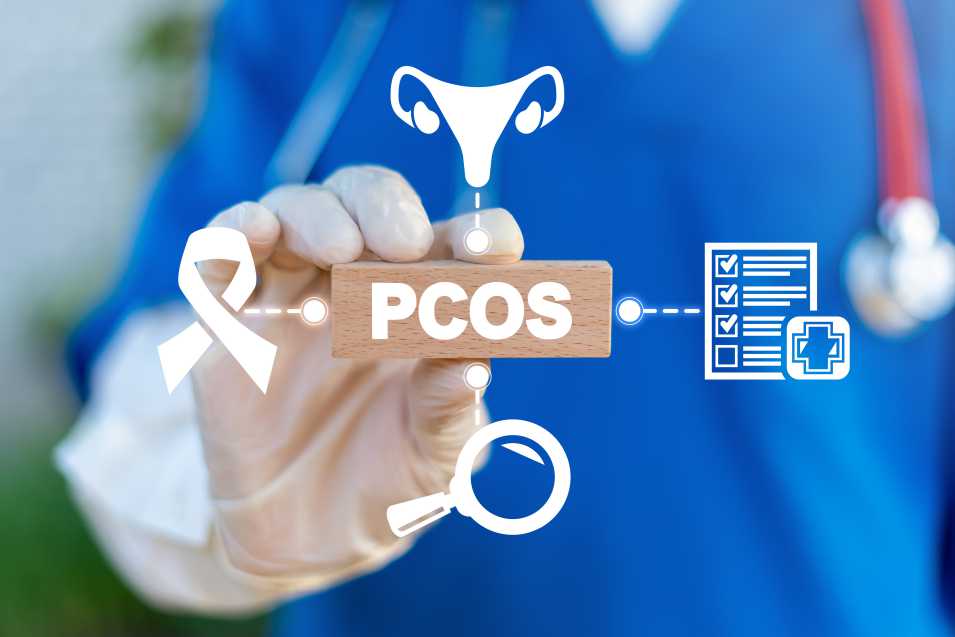Is PCOS an autoimmune disease? Autoimmune diseases are characterized by the presence of autoantibodies – immune cells that recognize the body’s own tissues as targets. These cells are also common in healthy people, although they are not necessarily disease-causing. A common risk factor for autoimmune disorders like PCOS is insulin resistance.
Polycystic Ovary Syndrome (PCOS) – Molecular Mimicry
Polycystic ovary syndrome, or PCOS, is one of the most common disorders in women. It is a complex condition that involves both hormonal and genetic factors. If a woman has PCOS, the disease may be triggered by an increased autoimmune response.
Molecular mimicry occurs when a part of the body’s immune system misidentifies a normal, harmless substance as a foreign invader. As a result, the immune system begins attacking the tissues that look like the invader. This mistake results in autoimmune disease.
Is PCOS an Autoimmune Disease? Inflammation
It is not clear why women suffer from PCOS, but inflammation is often a contributing factor. A weakened immune system may trigger an autoimmune response, resulting in the condition. A high viral load and toxins in the body can also contribute to inflammation. Stress can also play a role in causing inflammation. Because inflammation is a key factor in PCOS, treating inflammation can help women manage symptoms. Lifestyle changes can also help women improve their gut health and manage symptoms.
The underlying cause of PCOS is an imbalance between the ovaries and the immune system. The disease is triggered by a combination of factors, including oxidative stress and hormonal imbalance. Inflammation can affect ovarian tissue and cause cystic follicle formation. The inflammatory response can also lead to ovarian dysfunction.
PCOS and Psoriasis
Is PCOS an autoimmune disease? Psoriasis is an autoimmune disease that leads to scales and plaques on the skin. It is also associated with insulin resistance, metabolic syndrome, and cardiovascular disease. It is thought to be caused by an interaction of several genes. Genetic factors make a person more prone to developing the disease.
In women, PCOS and psoriasis are often co-existing conditions. Both autoimmune diseases affect the skin and may contribute to infertility. In addition, both psoriasis and PCOS are accompanied by common metabolic conditions. Patients with PCOS and psoriasis are more likely to have diabetes, hypertension, and insulin resistance.
Polycystic Ovary Syndrome and Psoriatic Arthritis
Psoriatic arthritis is an inflammatory disease that affects the skin, joints, and spine. Women with polycystic ovary syndrome are at risk for developing psoriatic arthritis. The two diseases have been linked to each other, but research on the relationship has been limited.
Patients with psoriatic arthritis are at increased risk of a number of complications, including high blood pressure, heart disease, and stroke. This condition can cause women to become infertile if they don’t undergo treatment for it. The main goal of this treatment is to reduce inflammation while also relieving symptoms. Nonsteroidal anti-inflammatory drugs (NSAIDs) and disease-modifying anti-rheumatic drugs (DMARDs) are used to treat psoriatic arthritis.

How Do I Get Rid of PCOS Disease?
Although PCOS currently has no cure, there are a number of medications that can help with symptoms. Your PCOS symptoms should be prioritized when choosing a treatment. For example, if you are experiencing infertility, your doctor may recommend medications such as clomiphene or letrozole to stimulate ovulation.
If you are experiencing hirsutism or acne, medications such as spironolactone or birth control pills may be recommended. If you are overweight, weight loss through diet and exercise may be suggested to improve symptoms. When medical management of PCOS fails, some women may consider surgical intervention. You and your doctor must collaborate to create a treatment plan unique to your condition and goals.
Related Article: Juvenile Rheumatoid Arthritis Occupational Therapy
